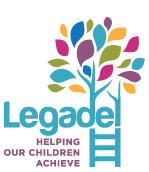Educational Psychologists (EPs) are concerned with children's learning and development. They have skills in a range of psychological and educational assessment techniques and in different methods of helping children and young people who are experiencing difficulties in learning, behaviour or social adjustment.
During their training, EPs study normal child development, the psychology of learning and teaching and psychological aspects of educating children with special needs. They study how groups function and how people communicate and maintain relationships. They also learn about assessment, solving problems, counselling, treatment, research and training others.
EPs have a role in the assessment of children's difficulties from an early stage and a statutory role in the multi-professional assessment, as required by the Education Act 1996. Much of the work of EPs is with children and young people from 0 to 19 years, both at pre-school level and in mainstream and special schools.
In their work, EPs attempt to make the bridge between theory and practice by translating research into innovative and relevant practice in the classroom.
All EPs must be registered with the Health Professions Council and must engage in an extensive programme of Continuing Professional Development.


